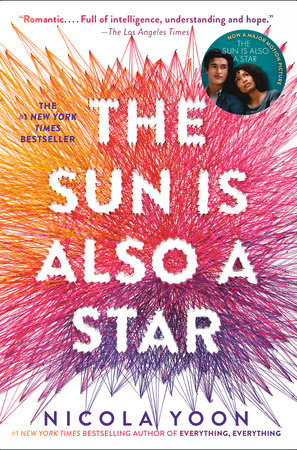Smothering: Holding Our Kids Close, But Knowing When to Let Go
by Nicola Yoon
When my husband and I decided to expand our family, I naturally expected that I would love our future daughter. I imagined that I would, of course, cherish her like any other mother. But I could never have predicted the magnitude of that love — the overwhelming need to protect her, to take on any and all comers.
Like any newborn, she was tiny and fragile. In those heady, sleepless, and uncertain first days of being a new mom, the world seemed too large and entirely unsafe. I saw threats everywhere, from dust mites, to the common cold, to other people, and so on.
I suspect that every new parent feels a version of this need to protect. If I could’ve kept her home in a kind of metaphorical bubble of love, I would have. And it was this feeling that helped spark the idea for my novel Everything, Everything. What if we took that parental protective instinct to its logical extreme? What if there was a child that needed constant protection from the outside world? What would that do to the relationship between a mother and her child? What would that do the child’s sense of herself and the world? And what would happen when that child finds a love of her own, and begins to feel the urge to leave the nest?
As the months passed for me as a new mother, I realized that protecting necessarily means letting go. It’s not an easy lesson to learn. I cried when she got her first painful bruise. I cried when she had a cold that was so bad that she coughed all night. But we survived both those incidents and all the other ones that followed and we’re both better for it. What I’ve realized is that you keep your child safe by letting them fall, letting them eat a little dirt, letting them be sad sometimes — for how else would they learn to forge their own path in a challenging world? A child coddled her entire life into adulthood would indeed be a strange person, utterly unable to cope with even the slightest danger.
In Everything, Everything, the main character, Madeline, suffers from “bubble baby” disease. She’s so allergic to the world that she’s never left her house in all her seventeen years. One day a new family (with a very attractive and mysterious boy) moves in next door. Madeline’s never known romantic love before and, through a burgeoning romance, she begins to discover the world, even as her mother tries to protect her from it both emotionally and physically.
One day my own little girl will grow up. She will fall in love, form friendships, and push against my boundaries. Some of those boundaries will fall because they have to. That’s what growing up means. To protect our children, to let them foster the wisdom and strength it takes to live as an independent adult, we must perform that most heartbreaking of parental duties and open the door so that they may walk through it and ultimately out of our lives.
Every child has walked through that door. And every parent has held it open with bittersweet tears of pride in their eyes. I will, too.
-
Books by the Author
-
The Sun Is Also a Star
Also available from:


